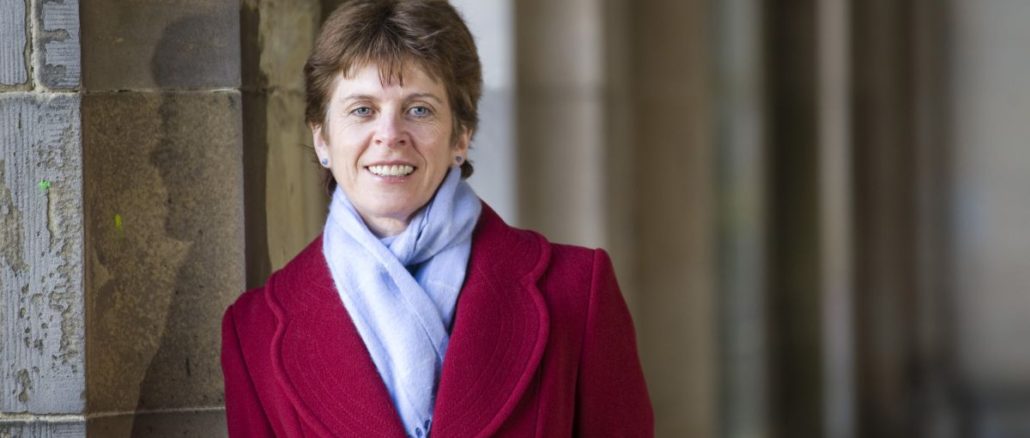
[dropcap]Louise[/dropcap] Richardson is host to an impressive list of accolades, becoming the first woman Vice Chancellor at St Andrews University and being awarded with ‘The Graduate School of Arts and Sciences Centennial Medal’ by Harvard. Ms. Richardson has also been named an honorary member of the Royal Irish Academy and has been awarded honorary doctorates by universities worldwide including Moscow State Institute of International Relations.
Professor Richardson’s career has gone from strength to strength and now at its peak, on January 1st, being named Vice Chancellor of the University of Oxford, the first female in over nine hundred years. Her success has not been without struggle and speaking as part of the ‘Mary McAleese Women in Leadership Lecture Series’ she relays the challenges she has faced, and many women still face, as a woman in leadership.
She recalls Harvard university meetings overlapping with the inconvenient closure of childminding services. It was customary for her to leave meetings at 4:50pm, racing to and fro to collect her daughter from childcare while attempting to re-enter the room looking professional, placing her daughter under the table and acting like nothing had happened. Her attempts to solicit more suitable hours were combatted with: ‘nobody asked you to have a child? That’s your business; it’s nothing to do with the rest of us.’
Every profession is shaped like a pyramid, the higher up you go the fewer women you find. This is strengthened by the interesting interjection that no Irish university boasts a leading woman. The balancing act between career and family is standing in the way. Ms. Richardson remembers independent-minded young women striving to model her choices. All she was thinking was ‘I am such a fraud because I am hanging on by my fingernails. I don’t want them to know how hard this is because they’re never going to want it.’
She believes sustaining a career while raising a family is much more difficult than it should be with the responsibility to relieve the burden falling largely on women as a society. Ms. Richardson found there to be a sizeable divide between women with and those without children; women not wanting to associate childcare as a women’s issue. ‘Women felt I moved too slowly, men felt I moved too quickly.’ Her assumption is that if we want more women in leadership roles it is essential to keep women’s careers alive during these more challenging years.
Louise remembers when leadership was seen as simply a white man in a suit. She remains conscious of being a role model for both young women and young men as she has no doubt that there is discomfort amongst some men around women in leadership hence the importance of becoming accustomed to women in leadership roles. ‘Leadership comes in every colour and gender.’ I am in awe of the woman sitting before me as she closes the lecture with her mantra; ‘there’s a special place in hell for women who don’t support other women.’
Méabh Riordan




Leave a Reply